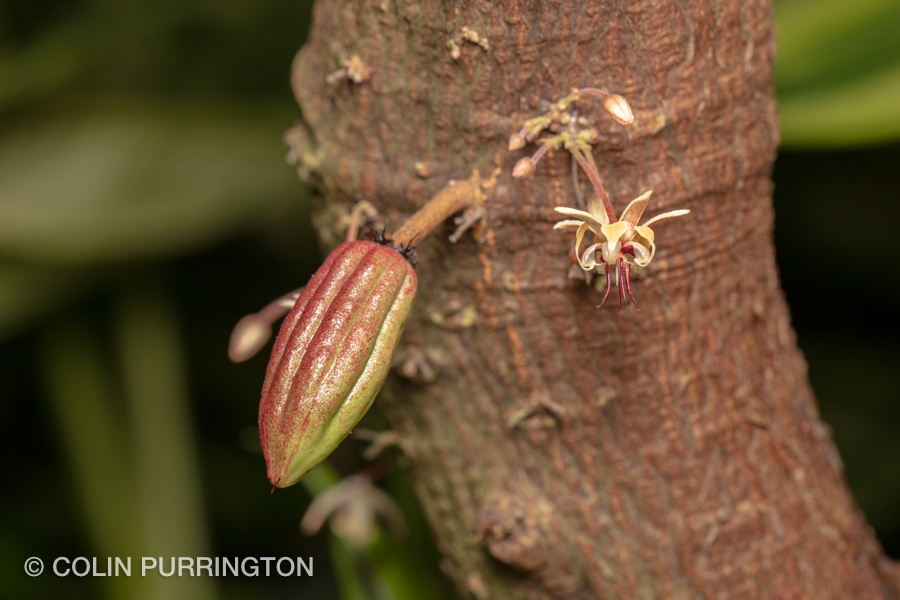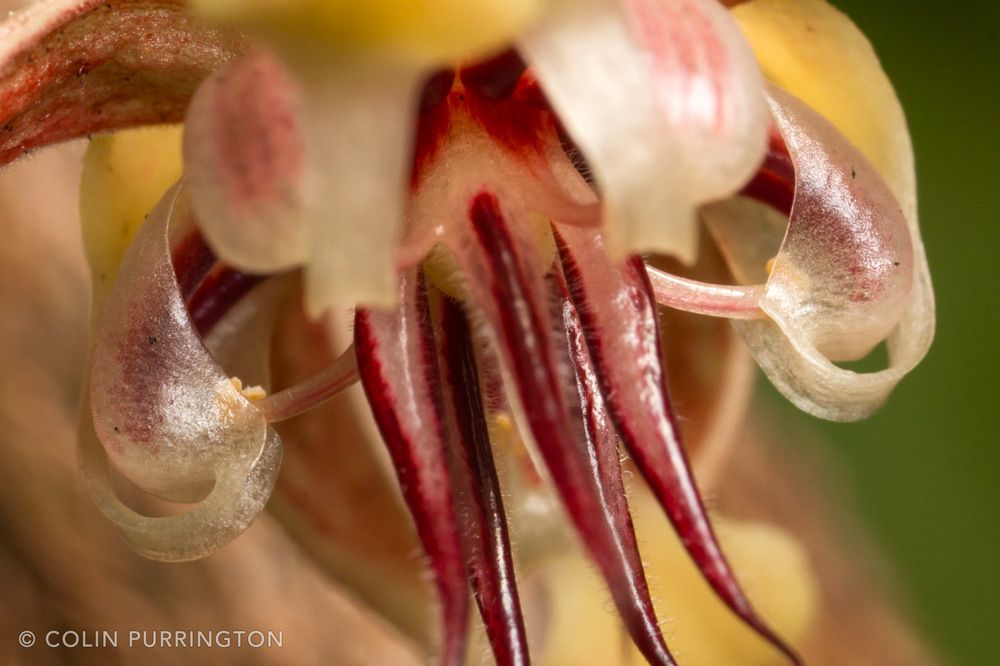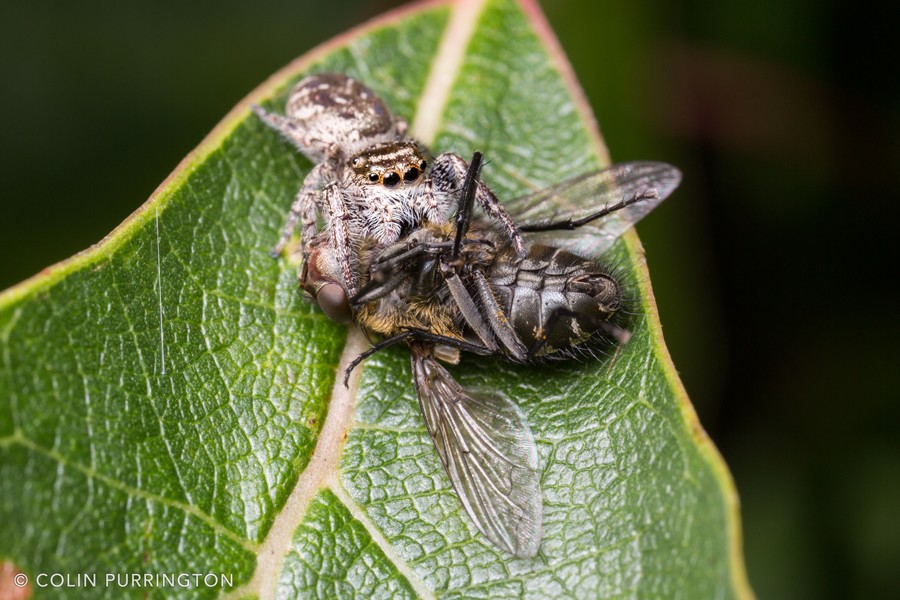Here are some close-ups of Theobroma cacao flowers at Longwood Gardens in Kennett Square. The plant is economically important (because chocolate) so people fuss over pollination a lot, but its bizarre floral anatomy is noteworthy regardless of the species’ value. First, here’s a photograph of a stem bearing a developing fruit and a flower:

The catchiest structures are the pointy red staminodes, stamens that became neutered over evolutionary time, which probably have roles in visual attraction of pollinators (ceratopogonid midges) and in preventing self pollination. The real stamens are enclosed in translucent petal pouches.

According to one scenario I read, the flies first land on the exterior of the pouch, then crawl inside to lap up nectar from minute glands on the adaxial surface near the anthers. During their foraging they get coated with pollen, and some of the pollen gets deposited on the style (small white structure encircled by the staminodes) when they exit the pouch. Here’s a close-up that shows the translucent pouches:

Presumably some of transferred pollen is from previous visits at different trees (because most types are self-incompatible). These flies do such a terrible job pollinating that farmers often just do it themselves with paintbrushes and forceps. There’s even speculation that the domestication of T. cacao some 1500 years ago slowly changed the plant enough that the original pollinator(s) (bees?) were lost, with the midges being the only insects still interested in the meager nectar rewards.
The photograph below the “parallel staminodes” variant of the flower.


